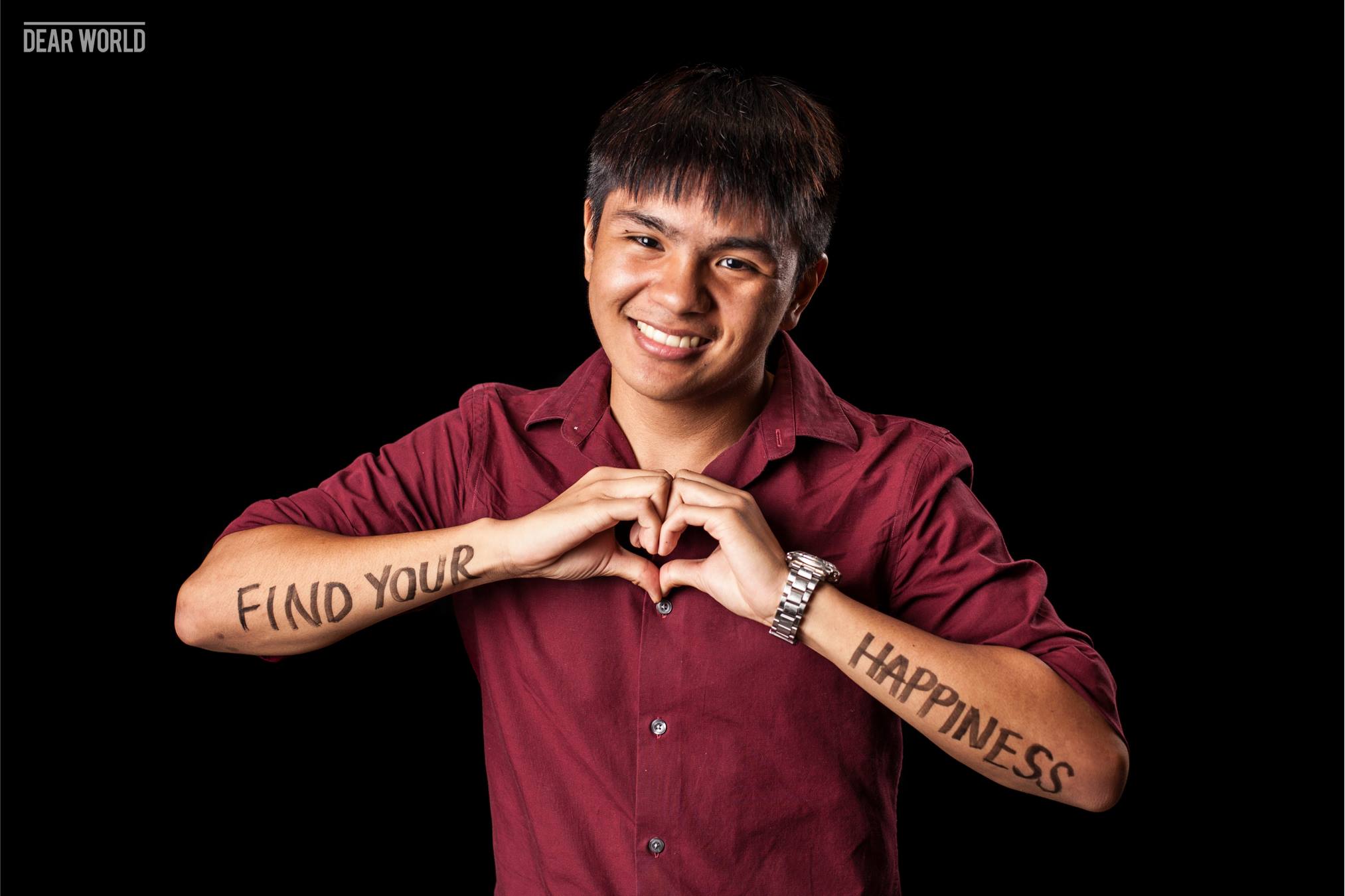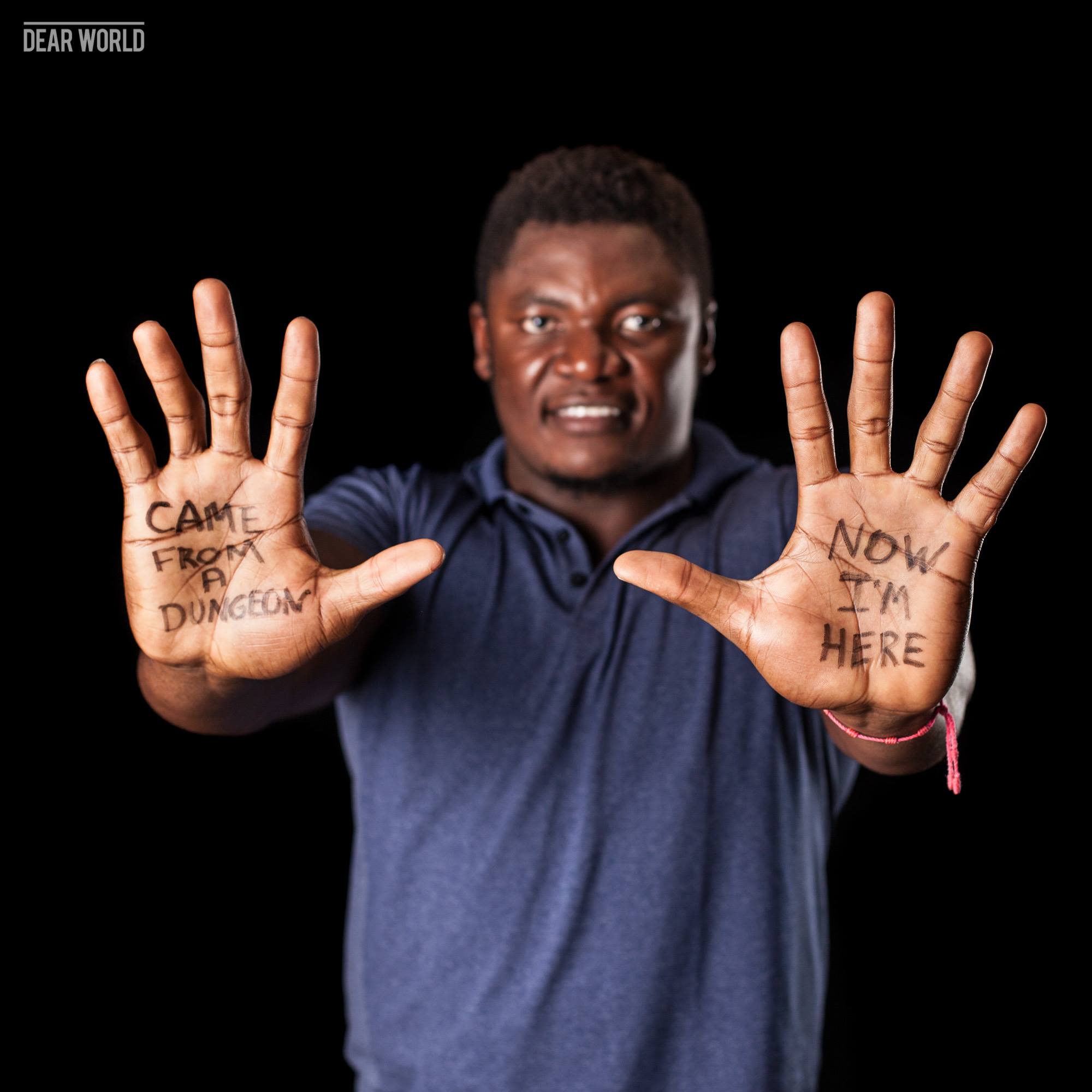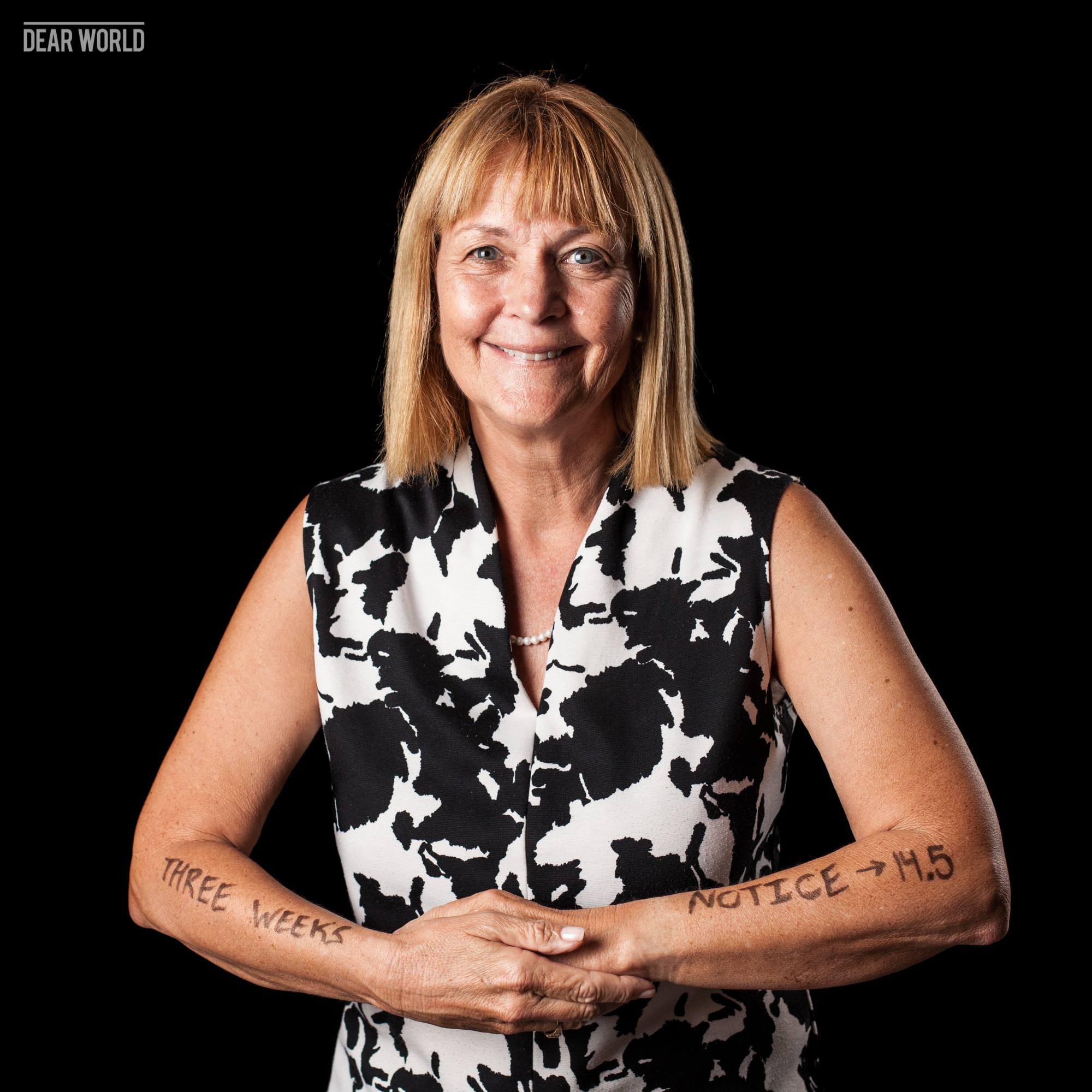Updated 8:30 p.m., Sept. 12: This story was updated to more accurately represent Generato’s relationship with his family.
Dear World, an interactive, award-winning portrait project, visited the University of Miami on Thursday as part of the project’s national college tour.
During the day, the team took portraits of students, administrators and staff in their makeshift University Center photo studio. This culminated in an evening Storytelling Presentation in the SSC Grand Ballroom. They presented portraits of members of the campus community, each with brief phrases written on their skin in black marker to represent their stories and feelings. Five students also were chosen to speak about the words they wrote.
Dear World has already visited several universities before coming to Miami in an effort to capture the stories of students all across the nation.
At UM, nearly 300 students had their portraits taken, set against a black backdrop with writing on their arms, in Dear World’s distinct message-on-skin style. Out of all portraits taken, Dear World picked five students whose stories they felt were compelling to share to more than 200 members in the audience at the presentation.
The stories were lighthearted, poignant, jarring and in the end, uplifting. Katie Greenman, a storyteller and program consultant for Dear World, said this was what defined them as strong characters.
The picture of Earl Generato, one of the five speakers, was a stark contrast to the past he shared. He flashed a huge smile in his picture, with the words, “find your happiness,” written on his arms. His story was about his attempted suicide.
“I wanted to make people smile because I thought I would never be able to smile again,” Generato said.
Four years ago, he wanted to reveal his sexual orientation and confided to his best friend and parents. For the longest time, he urged himself to come out to them and hoped it would be a positive, accepting experience. The outcome at that time, however, was devastating.
“I decided I would come out to my friend,” Generato said. “That day, I lost him. That crushed me. I felt angry, depressed, and alone. And I wanted to feel like I was loved, that I was accepted. So I went to my parents and at that time, they weren’t accepting. They told me that I was a mistake. That I was broken.”
Generato said he hated who he was. He viewed his sexual orientation as something he could control. He felt he had only one option left: to end his life by swallowing pills.
“I woke up the next day and the first thing I remembered doing was laughing. My parents were right, I was a failure. I couldn’t kill myself,” he said.
Generato said he never attempted suicide again, but negativity still lingered in his mind. That changed, however, when a high school statistics teacher noticed he was suffering and showed him acts of kindness for weeks and then gave him a life-altering message.
“After weeks of those kind acts, he finally sat me down and said, ‘You know, I don’t know what’s going on. There’s so much sadness in the world, but there’s also so much happiness. You just have to go and find it,’” Generato said.
Generato and his parents were eventually able to repair their relationship.
“Despite this past, they had come to accept and love me fully as a person,” Generato told The Miami Hurricane after the event. “I love my parents so much.”

Miami Hurricanes football offensive lineman Sunny Odogwu spoke about his experiences growing up in Nigeria. Odogwu, who is from Ezeagu in southern Nigeria, said the advertisements showing an African kid with no clothes asking for $1 donations to “save a kid’s life” was his life, a metaphorical dungeon. In his portrait, he had, “Came from a dungeon, now I’m here” written across his palms.
Even in desperate conditions, Odogwu said he knew he was destined to do something great with his life.
“I was that kid you saw on TV,” he said. “I know, though, that wasn’t who I was. I was in the worst place in Nigeria, but I knew that I always had something in my heart. I always knew that wasn’t who I was; I was someone greater.”

The stories brought tears to Greenman, who helped organized Dear World’s college tour. She said students at the university were among the most “unique and vulnerable” people she had ever met.
“The students were so hungry to just share their stories and quick to. The amount of openness on who they were and what they wanted to talk about was really obvious and a powerful thing to be a part of,” Greenman said.
She said colleges are the best place for to hear personal stories and use those to widen conversations about issues such as diversity, mental health and sexual assault.
“I was in awe of how open, vulnerable, raw and honest everyone was,” Greenman said. “… That was one of the most fulfilling days for me.”
Greenman helped community members find the story that defined them and would be written on their skin. She spoke to each person and dug deep to find something meaningful and representative of them.
“I couldn’t stop crying,” was written on the arms of a faculty member. “Motherless child,” was on the palms of a student. “I am not to blame,” on the arms of another.
Then there were the uplifting ones: “I define me,” written on someone’s arm; “Water your roots, grow branches,” on another’s; “When life broke beneath me, I learned how to fly,” written on palms.
Dear World started as a “love letter” to Louisiana after the city was hit by Hurricane Katrina, Greenman told the audience. Photographer Robert Fogarty began taking photographs of residents and survivors, but that soon evolved into a project about resilience, about how the entire human experience is an act of survival.
“It all started six years ago in New Orleans, right after Hurricane Katrina,” Greenman said. “We were taken to the streets with permanent markers and asked people in the city, in their time of devastation, to bring some love and life back in the city,”
One day, a man asked if the story had to be about New Orleans, as he wanted to tell his own personal story and marked on his chest the words, “Cancer free.”
That portrait became their first in the project and is featured prominently on the Dear World website.
“That inspired us to tell stories. The more we share stories, the more communities connect,” Greenman said.
Ever since, Dear World has covered people from all around the world, including Syrian refugees and victims and responders of the Boston Marathon bombings. Dear World has been featured by PBS, the New York Times and the Washington Post.
Patricia Whitely, vice president for student affairs, invited Dear World to come to UM to capture students’ struggles and strengths.

“I saw this program and absolutely loved it and knew that we had to invite them to our campus, especially for the start of the semester,” Whitely said. “The responses have been inspiring, understanding, encouraging … Programs like this are critical for our diversity. This shows that we have so much in common with each other.”
To see select photos from Dear World’s event at UM, click here.





